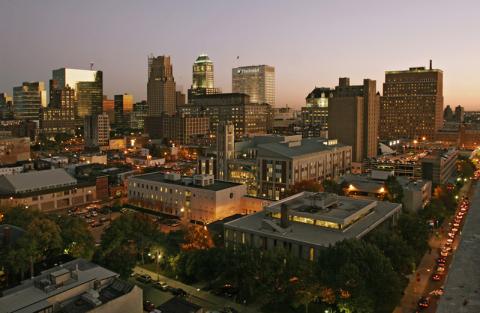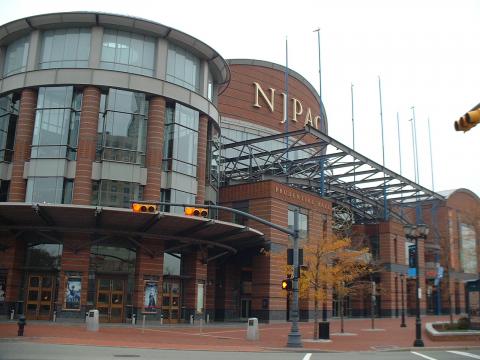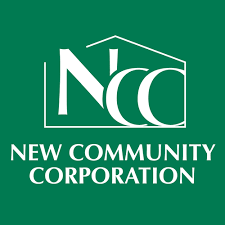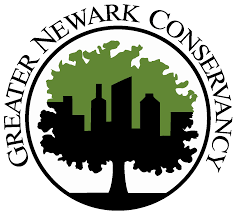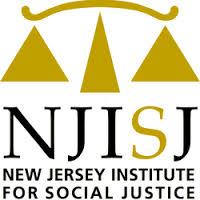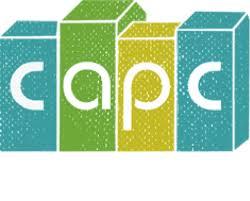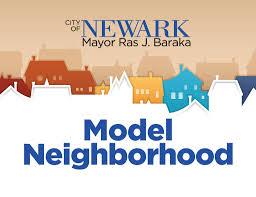Posted December 2015
Located less than 10 miles from New York City, Newark, New Jersey is a major commercial center in the northeast. With nearly 278,500 residents, Newark is the state’s largest city and functions as a major transportation hub, home to one of the nation’s busiest airports, Newark Liberty International Airport, as well as Port Newark, the largest container shipping terminal on the East Coast.
Newark’s prime location helped fuel significant industrial and population growth during the 19th and early 20th centuries. After reaching a peak of 442,337 in 1930, however, the city’s population began to decline as significant numbers of white residents began moving to the surrounding suburbs and manufacturing jobs began leaving the city. Between 1950 and 1967, Newark’s white population declined from 363,000 to 158,000, while its black population grew from 70,000 to 220,000, resulting in the concentration of poorer blacks in the city’s core. Sparked by police brutality and fueled by black residents’ on-going experiences of disenfranchisement and discrimination, in 1967, the city suffered six days of intense protest, violence, and a deadly crackdown by police and the National Guard.
According to the 2010 Census, the city is now 52 percent black, 34 percent Hispanic or Latino, 12 percent white, and 2 percent Asian. Poverty is a significant problem, with 29 percent of all residents living in poverty compared to just 10 percent statewide. People of color are disproportionally affected: while more than one-third (34 percent) of all black residents live in poverty, just one-fifth of white residents live in poverty. Political corruption has also been a major challenge, with five of the city’s previous seven mayors being indicted on criminal charges.
In recent years, however, Newark has experienced a new wave of growth, due in part to the significant effort of its array of community wealth-building organizations. For instance, New Communities Corporation (NCC), one of the largest community development corporations in the nation, owns and manages 2,000 units of housing, employs 600 people, and serves more than 50,000 residents a year through its diverse array of programs and services.
City anchor institutions are also playing an important role. Rutgers-Newark Chancellor Nancy Cantor, whose ground-breaking work on the role of the university as a public good helped redefine the role of Syracuse University as an anchor institution, began her tenure in Newark in 2014 with a strong public commitment to Rutgers’ role as an anchor and active community partner. This commitment, now codified in the university’s new strategic plan, complements several pre-existing programs that address ambitions for community wealth building. For example, Rutgers-Newark now has a Center for Urban Entrepreneurship & Economic Development (CUEED), which is devoted to bringing renewed economic growth and vitality to the city. One of its programs, the Entrepreneurship Pioneers Initiative, is credited with helping sustain and grow over 130 local businesses run by first-generation entrepreneurs over the past seven years.
The City administration, headed by recently elected Mayor Ras Baraka, is working to shift economic development dollars to support neighborhood-based development. The primary economic development catalyst organization for the City of Newark, newly renamed the Newark Community Economic Development Corporation, has a commitment to creating wealth for the citizens of Newark in its mission statement. The mayor’s “Blueprint for Economic Development and Job Creation” includes a commitment to first-source hiring on city funded projects and the revitalization of neighborhood commercial corridors. The mayor has also announced plans to create an Office of Port Authority Operational Oversight and Lease Compliance to ensure Newark receives fair payment for the use of its port.
A review of these and other community wealth building efforts follows:
